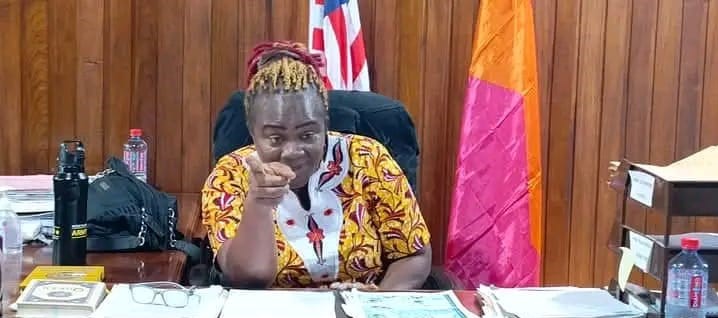The governance of Bong County, Liberia, has recently come under scrutiny due to allegations of a lack of transparency and accountability, particularly concerning Superintendent Hawa Norris’s alleged failure to submit mandatory reports outlining her administration’s activities and financial dealings. This alleged omission has sparked concern among citizens who argue that it contravenes the Local Government Act of 2018, legislation designed to ensure responsible and transparent local governance. The Act explicitly mandates the superintendent’s office to provide regular reports to both the county council and the Office of the President, a requirement that citizens claim Superintendent Norris has not fulfilled. This perceived lack of transparency has ignited a debate about the importance of public accountability and the responsibility of elected officials to serve the interests of the people rather than personal agendas. The controversy underscores the need for clear communication and accessible information regarding governmental operations, allowing citizens to actively participate in and monitor the management of their county’s affairs.
The allegations against Superintendent Norris have been amplified by her apparent reluctance to address the issue publicly. When approached by journalists for comment, she declined to respond, stating that she would only engage with reporters she personally knows. Furthermore, she suggested that concerns regarding her administration’s reporting practices should be directed to her office privately, rather than aired through the media. This response has done little to quell public anxiety and has, in fact, fuelled further speculation about the potential reasons behind the alleged lack of transparency. Critics argue that her refusal to engage openly with the media fosters an environment of secrecy and undermines the public’s right to access information about their local government. This reticence further emphasizes the need for mechanisms that guarantee public access to government information and ensure accountability for elected officials.
Compounding the issue is the conflicting information surrounding the county council’s reporting activities. County Council Chairman Aaron Sakie Falah claimed that the council had fulfilled its reporting obligations by submitting a report to the citizens of Bong County through a program sponsored by the National Youth Movement for Transparent Elections (NAYMOTE). However, this assertion was subsequently refuted by anonymous sources within NAYMOTE who clarified that the organization’s engagement with the council was purely educational. According to these sources, the interaction was designed to raise awareness about the council’s role and the implications of the Local Government Act, rather than to facilitate a formal reporting session as Chairman Falah had suggested. This conflicting information has further muddied the waters and added another layer of complexity to the ongoing debate about transparency and accountability in Bong County’s governance.
The unfolding situation in Bong County highlights the critical importance of clear communication, accessible information, and adherence to legal frameworks designed to promote transparent and accountable governance. The alleged lack of reporting from both the superintendent and the county council, coupled with conflicting narratives and a reluctance to engage openly with the media, creates an environment ripe for mistrust and speculation. The citizens of Bong County deserve clear and accurate information about how their local government is operating, and it is the responsibility of their elected officials to provide this information in a timely and accessible manner. The principles of open government dictate that the public has a right to know how public funds are being managed and what actions their elected representatives are taking on their behalf.
The Local Government Act of 2018, designed to promote decentralization and empower local communities, plays a crucial role in ensuring accountable governance. By mandating regular reporting from local government officials, the Act aims to create a system of checks and balances that prevents abuses of power and promotes transparency. The current controversy in Bong County underscores the necessity of upholding the provisions of this Act and ensuring that all elected officials are held accountable for fulfilling their legal obligations. The failure to adhere to these regulations not only undermines the principles of good governance but also erodes public trust and confidence in the local government’s ability to effectively manage public resources and serve the best interests of its constituents.
Moving forward, it is imperative that the relevant authorities in Bong County take decisive action to address the concerns raised by citizens regarding transparency and accountability. A thorough and impartial investigation into the allegations against Superintendent Norris and the county council should be conducted to determine whether the reporting requirements of the Local Government Act of 2018 have been met. Furthermore, mechanisms should be put in place to ensure that future reporting is conducted in a transparent and accessible manner, allowing citizens to readily access information about the activities and finances of their local government. fostering a culture of open government and accountability is essential for building trust between the government and its citizens and ensuring that the resources of Bong County are managed responsibly and effectively.


